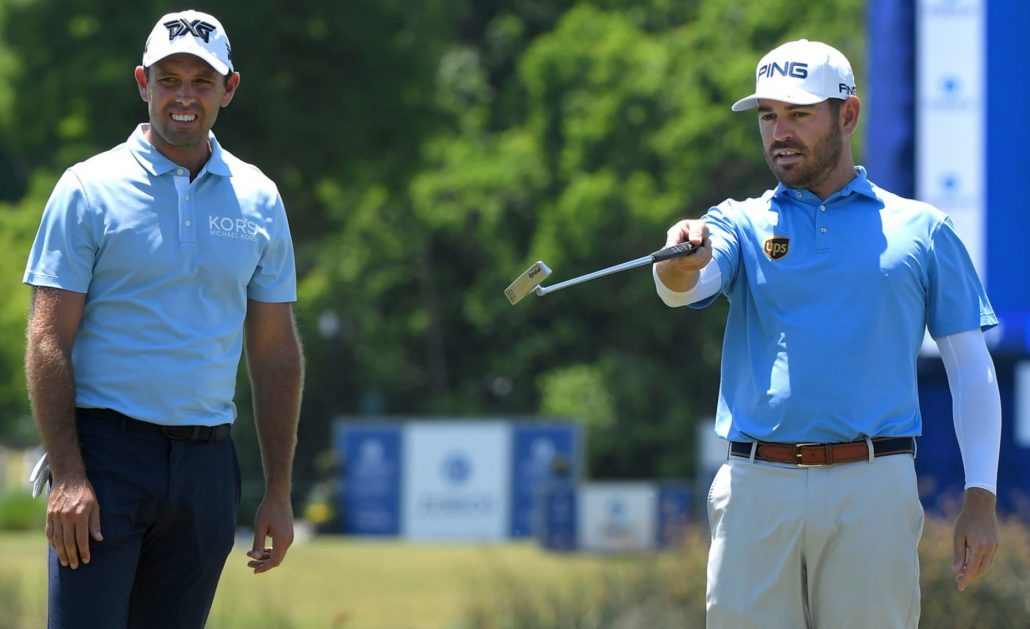South African golfers more than anyone should know that it’s wrong to take the blood money the Saudis are offering, writes GARY LEMKE.
According to reports, 15 of the world’s top 100 men’s players have committed to playing in the Saudi Golf League, an eight-event roster which starts in England and runs from June to October.
That means that 85% of the top 100 aren’t interested in taking the blood money, which isn’t really a great deal, is it? See, that’s the beauty of stats, one can tell any story to suit one’s narrative.
The Saudi Golf League is controversial, to say the least, because it is funded by LIV Golf Investments, basically backed by the Public Investment Fund of Saudi Arabia, which is effectively the Saudi government.
Now, the Saudi Golf League is an eight-event series with $225 million in prize money, a maximum of 48 players and 54-hole events with no cuts.
The flip side is that by breaking away from the established tours, specifically the PGA Tour and the DP World Tour, there’s the threat of bans returning to them once the new rebel tour finishes in October.
The global ‘face’ of the Saudi Golf League has been Australia’s Greg Norman, who has struggled to attract the top names in golf to take the cash and play in those eight events. Among the field of 48 is expected to be world No 1,053 Robert Garrigus. Should he finish last in the first event at Centurion in England, he’ll bank $120,000 for the inconvenience.
Other names – and we’ll know the entire identities of the 15, and more, in two weeks’ time – said to be joining the rebel league are Lee Westwood and Ian Poulter, 49 and 46 years old, respectively, while Phil Mickelson’s name is cropping up again. He’s 51. Even Sergio Garcia is risking his legacy, but he’s also on the other side of 40.
To bear in mind, the PGA Tour was formed in 1968 as a breakaway to the PGA of America and leading players at the time like Jack Nicklaus and Arnold Palmer were among the founding players, with more cash being the reason. So, on that level, what’s happening now with the Saudi Golf League isn’t much different, is it? Golfers looking to make the most money they can?
However, it’s the presence of South Africa’s Louis Oosthuizen (No 15), Branden Grace (No 103) and Charl Schwartzel (No 131) among those reportedly seeking permission from the PGA Tour to play in the Saudi Golf League that’s more surprising to me than the likes of Mickelson, Westwood and Poulter. I hope the reports are off the mark.
The South Africans are 39, 33 and 37 years old, respectively. Whatever money they can make at the hands of the Saudis would be dwarfed by what they can earn on the PGA Tour over the next 10 years, and that’s even before they’d be eligible to play on the PGA Tour Champions (senior) circuit.
I can’t blame them for having their heads turned, though. Everyone looks at a new job offer and money is always a key factor. Plus, it’s a human trait to respond positively to being loved. But, these golfers all have vast, highly paid teams behind them to do the best for them. You can be sure that Oosthuizen, Schwartzel and Grace would not make the decision over a glass of wine with their wives. They would have reached out and had input and advice from some of the best minds and financial brains to be found.
Surely, that input would include looking at the big picture – golf’s history. I know that Gary Player is 86 and he has the benefit of life experience, plus he has enjoyed the privileged life of a multimillionaire, but when spending a round with him at Steenberg in February he reiterated that with hindsight the history of golf matters more than the money.
“If you asked me to swap my [nine] Major titles for a billion dollars I would say no. Winning a Major gives you a life that money can’t buy.”
You might argue that Oosthuizen and Schwartzel are Major champions, so they’re not losing out.
But perhaps the thing that rankles with me is that, despite the trio living with their families in the USA, they’re South African – and if reports are true, they’d be taking easy money basically directly from a regime which has one of the worst human rights records on the planet. It, literally, is blood money.
Pretty much like the inaugural Million Dollar Golf Challenge at Sun City in 1981 when Player, Seve Ballesteros, Johnny Miller and Nicklaus fought it out in a five-man field for a first prize of $500,000 with $1 million on offer.
Sun City was part of Boputhatswana, an apartheid-supported homeland within South Africa, and under the leadership of Nationalist Party-endorsed Lucas Mangope. In 1981, apartheid was at its peak in South Africa, but this didn’t stop golfers – 10 of them played a year later, in 1982 – from coming down south for a week and taking the blood money.
None of Oosthuizen, Schwartzel or Grace were even born when the Million Dollar Challenge was launched, and Oosthuizen was still in nappies when West Indies rebel cricketers came to South Africa in the 1980s. None of the trio were born when the notorious Springbok ‘flour-bomb Test’ took place in New Zealand. When the final rebel cricket tour, Mike Gatting’s aborted England team, went home following protests, Grace was still a babe in arms. So, they won’t remember the outcry and the hurt done to their countrymen by these rebel tours, which included the New Zealand Cavaliers playing the Springboks in four Tests in 1986 in SA.
But, being South African and with the associated history of the dark period pre-1990, one might expect them, more than the Americans, Canadians, Englishmen and Spaniards, to be more sensitive about Saudi Arabia’s shocking human rights record and say no. History’s lessons are supposed to teach us to do the right thing next time around.
Sportswashing is a modern theme and those taking the Saudi Arabia cash might be doing so because if they don’t someone else will. It’s easy money, but it’s also blood money – while it’s showing the middle finger to everything that the PGA Tour and DP World Tour have done for them to become the dollar millionaires they are today.
– Lemke is editor of Compleat Golfer magazine








